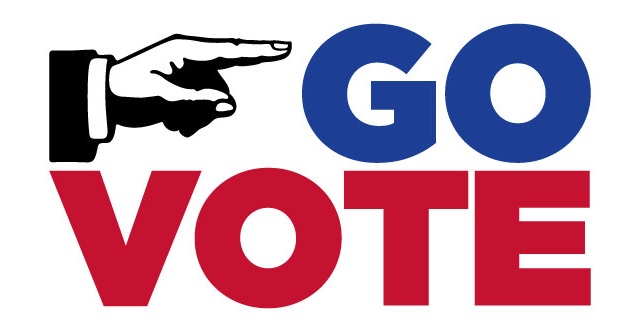2024 is one of those years.
That’s because Mexico elects a new president every six years, and the U.S. has a presidential election every four years. In Mexico, the president is limited to one six-year term. In the U.S., the president cannot serve more than two four-year terms.
The two presidential elections will take place five months apart. Mexicans will go to the polls on Sunday, June 2, and the U.S. holds its presidential election on Tuesday, Nov. 5.
The two elections may be the most important ever in terms of impacting both sides of the border.
“Arguably, no simultaneous presidential elections have ever been as important for the bilateral relationship as those transpiring in 2024,” said Ryan Berg, director of the Americas program at the Center for Strategic and International Studies, a research organization.
The winners of the two elections will shape the course of bilateral relations from next year until nearly the end of the decade, Berg said.
What’s more, Mexicans and Mexican-American voters living in the U.S. could play a significant role in deciding the outcome of both elections, especially if the elections are tight.
In Mexico, the 2024 election will likely be historic. The two frontrunners are women. The winner likely will become Mexico’s first female president.
People with Mexican citizenship living abroad are eligible to participate in the Mexican presidential election. That means many Mexican Americans with dual citizenship living in the U.S., including naturalized U.S. citizens and U.S.-born citizens, will be able to cast ballots in both the U.S. and Mexico presidential elections, said Jorge Mendoza Yescas, the consul general of Mexico in Phoenix.
The process for Mexican citizens living abroad, including in the U.S., to vote in Mexico’s presidential election will be easier than in the past, Mendoza Yescas said.
So far, 70,000 voter registration cards have been issued to residents in Arizona, Mendoza Yescas said.
Arizona has one of the largest Mexican and Mexican-American populations of any state in the U.S., so interest in the Mexican elections will be high.
There are more than 38.7 million people in the U.S. who were either born in Mexico or are of Mexican descent, according to the Migration Policy Institute. Of those, nearly 2.1 million live in Arizona, which has the third largest Mexican diaspora population of any U.S. state behind California and Texas.
There are 10.6 million people born in Mexico living in the U.S., according to the U.S. Census Bureau’s American Community Survey. Of those, about 502,000 live in Arizona.
Arizona ranks fourth in terms of states with the most Mexican immigrants, behind California, Texas, and Illinois, according to the Migration Policy Institute. The Phoenix area ranks sixth, according to the institute.
When is the registration deadline for Mexico’s presidential election?
Mexican citizens abroad have until Feb. 20 to apply for a voter registration card, which they will need to apply for a ballot. Mexican citizens can go to any consulate to apply. The Mexican consulate in Phoenix is located at 320 E. McDowell Road.
What documents do Mexican citizens abroad need to register to vote?
Mexican citizens abroad need three documents to apply for a voter registration card:
- Proof of Mexican citizenship, such as a birth certificate or passport.
- Photo ID, such as a consular ID card or ID issued by a local authority.
- Proof of address in the U.S., such as an electric bill.
How do Mexican citizens abroad vote?
Mexico’s autonomous National Electoral Institute is in charge of the presidential election. Mexican citizens abroad with voter registration cards can vote one of three ways: by certified mail, online, or in person on June 2 at one of 10 Mexican consulates in the U.S., including the one in Phoenix. The option to vote online or in person at consulates in the U.S. is new this election cycle, Mendoza Yescas said. More information about voting by certified mail or online is available at https://www.votoextranjero.mx/web/vmre.
U.S., Mexico presidential campaign rhetoric spilling over border
Rhetoric from the U.S. and Mexico presidential campaigns is already spilling across the border from sides on issues such as trade, border security, illegal immigration, drug trafficking, and cartels. Some leading Republican presidential candidates have called for using the U.S. military to battle the cartels.
As the elections get closer, expect even more heated campaign rhetoric, Berg said.
TYT Newsroom


